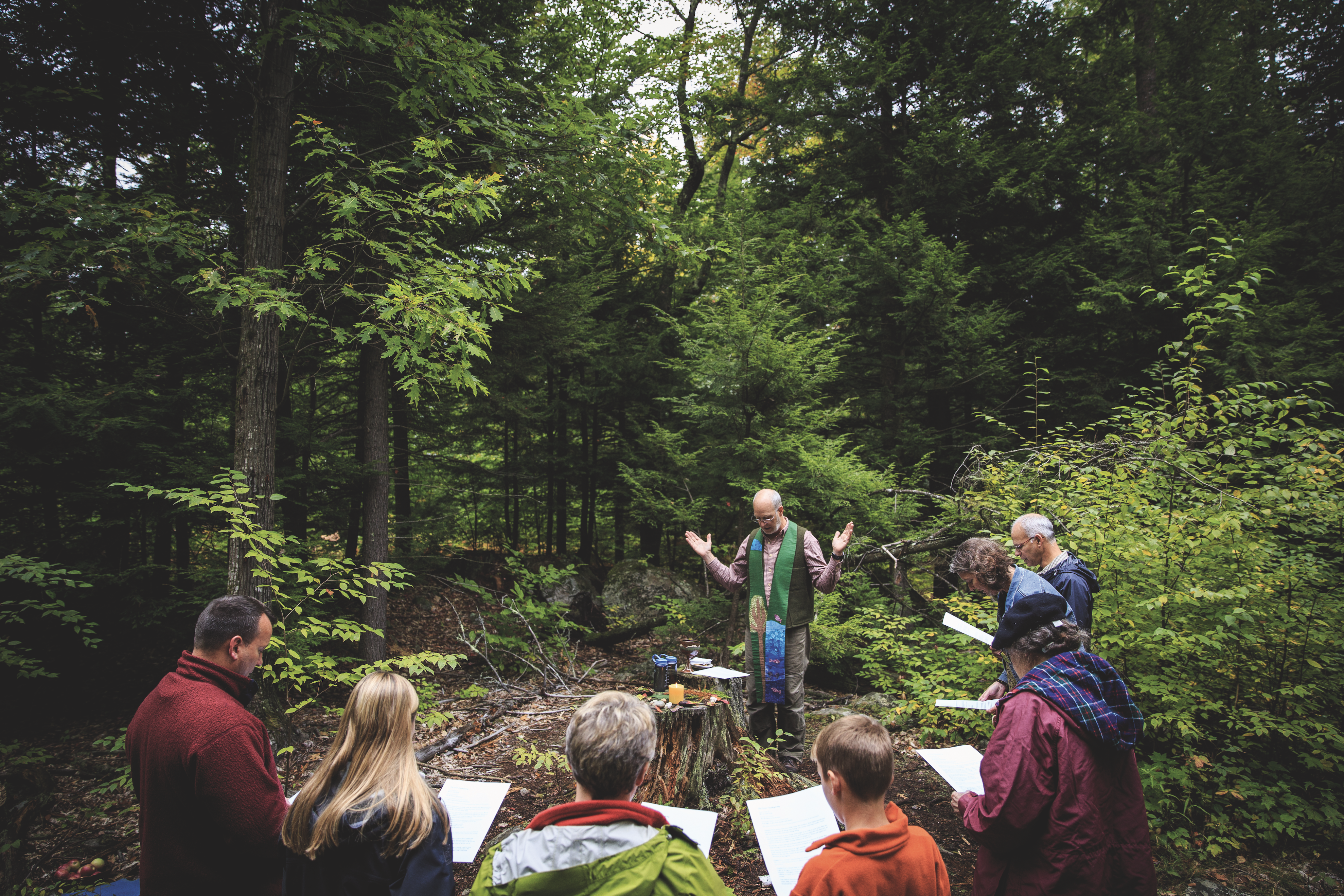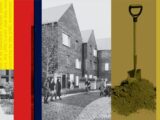Stephen Blackmer was in an airplane when he heard the call. The 52-year-old American conservationist, who had helped preserve millions of acres of New England forest, was flying over Dublin when a voice inside his head said: “You are to be a priest.” He’d never been to church in his life. Wandering in the woods was as religious as he got.
And yet, the voice was one of the most real things he’d ever heard. “And yet” is an expression Blackmer uses often to hinge two seemingly irreconcilable realities. “There’s nothing anyone could ever say that would persuade me the voice wasn’t God speaking,” he says. “And yet, everything I believe about what God is — it’s not some person in the sky who speaks.”
You may unsubscribe from any of our newsletters at any time.
A few weeks later, Blackmer resigned from his job directing the Northern Forest Center. He told his co-workers he was burnt out. After decades defending a band of forest from the Adirondack Mountains all the way up to New Brunswick, Blackmer had realized he was only putting a Band-Aid on a cancer. The magnitude of climate change overshadowed all his efforts.
“Now what do I do?” he thought. It would take another excruciating year to figure that out. It was the darkest period of his life. He had no direction. His mother died of cancer. Around the world, species were going extinct at alarming rates.
At the end of that year, Blackmer walked into an Episcopal church in his hometown and sat down. No one was there except an organist practising hymns, but Blackmer knew he was where he needed to be. A few months later, he was baptized.
More on Broadview: For Laurel Dykstra, faith fuels a fight for the climate
In divinity school, Blackmer read the Bible for the first time. It was full of trees, from the tree of knowledge in the Garden of Eden to the tree with healing leaves on the last page of Revelation. And between those two trees stood another, stripped and desolate: the cross.
The priesthood, it turned out, would not take Blackmer away from the trees. As soon as he was ordained in the Episcopal Church, he started the kind of congregation he’d dreamed of. The congregants of Church of the Woods gather in the 43-hectare forest of hemlock, oak and pine that Blackmer and his wife own outside of Concord, N.H. Their services begin with a scripture reading and perhaps a poem. Blackmer offers a short homily before sending his parishioners out to wander alone. When they return, they share what they’ve heard. “There’s me speaking, and there’s the woods speaking, and there’s each other speaking,” he says.
Blackmer believes that contemplation in the wilderness, combined with the deep stories and rituals of Christianity, has the power to heal our destructive impulses. He often finds himself weeping as he shares the eucharist among the trees. “It shifts reality in ways that I cannot explain,” he says. Environmental activism is focused on changing the behaviour of others, but the spiritual work he does now transforms his parishioners from the inside out. “In order to live in relationship with each other and the world, we have to live as if the world were sacred.”
Catastrophe is coming — “The whole Earth has to go through crucifixion,” as Blackmer puts it. In the midst of that apocalypse, who will remind us that we’re called to live in a sacred relationship with each other and the Earth? “After the fall of the Roman Empire, this is what the monastic communities did. After the crucifixion, that’s what the early Christians did.”
Broadview is an award-winning progressive Christian magazine, featuring stories about spirituality, justice and ethical living. For more of our content, subscribe to the magazine today.














